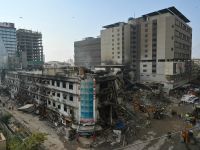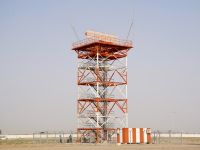Rotana transitions into the green era, secures ISO 14001 certification for 16 UAE hotels

Marking a major milestone in its long-standing commitment to environmental sustainability, Rotana today announced that 16 of its hotels in the United Arab Emirates, representing nearly 50% of the company’s portfolio in the country, have obtained the ISO 14001 environmental management certification. ISO 14001 is an international standard that provides a set of standardised requirements for environmental management systems.
The independent, third-party certification audit was conducted by Bureau Veritas, a global leader in conformity assessment and certification services.
Commenting on the achievement, Rotana’s Chief Operating Officer, Guy Hutchinson said, “The social, economic and legal arguments for taking action on environmental issues are becoming more persuasive and more widely requested by different stakeholders. Rotana hotels around the world are taking various initiatives for the sake of the environment under our global sustainability platform Rotana Earth. Now, we have gone one step further by adopting the internationally-recognised ISO 14001 environmental management standard in our hotels, and we are extremely proud that as many as 16 Rotana hotels in the UAE have successfully implemented and achieved this certification.”
“We are already seeing the benefits of this implementation, both in terms of enhanced employee engagement and guest appreciation as well as reduced operating costs,” Hutchinson added.
The external audit was preceded by extensive planning, surveying and reworking of Rotana’s internal systems and processes. A gap analysis was conducted to evaluate the status of the company’s existing systems: as a result, policies were reviewed, budget was assigned to get necessary resources and trainings, and committees were established in each hotel.
Alongside, a performance monitoring system was implemented and every property was assigned a set of key performance indicators (KPIs) for energy, water, waste reduction, waste segregation, and migration towards more responsible products. To ensure effective control on documents, Rotana deployed a centralised documentation system in which all manuals, procedures, work instructions and forms were securely stored.
Achieving the certification across such a large number of properties involved sustained support and commitment from Rotana’s top management who were actively involved in the review of systems and policies and in providing adequate resources to ensure effective implementation.
Employee involvement and participation proved equally vital. Before initiating the development process, Rotana conducted extensive training sessions and workshops to ensure all employees were aware of the requirements and benefits of the ISO 14001 certification. This proved key in securing employee buy-in and helped move the organisation cohesively towards the overarching goal of sustainability.
“Sustainability is at the heart of everything we do at Rotana. We remain committed to integrating sustainable practices and principles across our business,” Hutchinson concluded.
Background Information
Rotana Hotel Management Corporation
Rotana was founded in 1992, by a partnership between two visionary thinkers, Nasser Al Nowais and Selim El Zyr, who were joined three years later by Nael Hashweh and Imad Elias.
Operating as Rotana, it opened its first property in Abu Dhabi in 1993 and is today one of the leading hotel management companies within the Middle East and North Africa.
Rotana is a company offering the best of both worlds. A unique understanding of the culture and communities of the Middle East combined with the collective expertise of an executive team contributing over 35 years of international experience in the service industry.
Rotana aggressive expansion plans have seen the company grow from 2 properties in 1993 to a total of 70 by 2014. With several further properties planned for opening and new projects in the pipeline confirming the company's intention to have a Rotana managed property in all the major cities throughout the Middle East and North Africa within the next five years.






